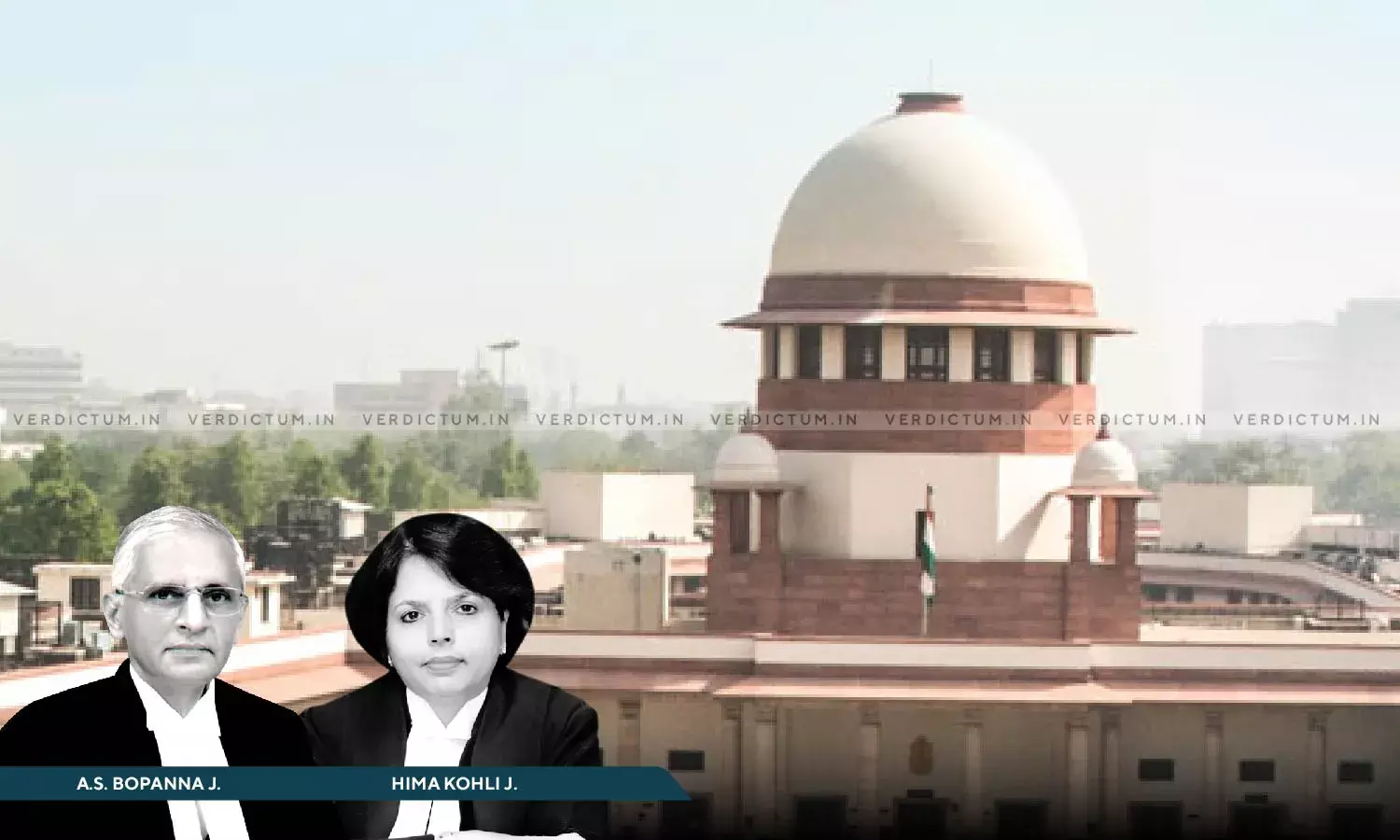SC Sets Aside Order Communicating Decision Of President To Compulsorily Retire Permanent Commissioned Officer In Indian Army

The Supreme Court has set aside the order passed by the Central Board of Direct Taxes, Department of Revenue, Ministry of Finance, Government of India communicating the decision of the President of India to compulsorily retire the appellant.
The appellant in this matter was a Permanent Commissioned Officer in the Indian Army and due to a physical disability in the course of Army operations was demobilized and released from service.
The two-Judge Bench comprising Justice A.S. Bopanna and Justice Hima Kohli observed, “If the appellant was worthy of being continued in service for little short of a decade after he had attained the age of 50 years and of being granted an overall grade of 9 on the scale of 1 - 10 on 31st July, 2019 it has not been shown as to what had transpired thereafter that made the respondents resort to FR 56(j) and invoke the public interest doctrine to compulsorily retire him with just three months of service left for his retirement, in routine. … it is deemed appropriate to reverse the impugned judgment dated 31st May, 2022 and quash and set aside the order dated 27th September, 2019 passed by the respondents, compulsorily retiring the appellant.”
The Bench reiterated that any exercise of power that exceeds the parameters prescribed by law or is motivated on account of extraneous or irrelevant factors or is driven by malicious intent or is on the face of it, so patently arbitrary that it cannot withstand judicial scrutiny, must be struck down.
The petitioner appeared in person in this matter while Additional Solicitor General Sanjay Jain and Advocate Raj Bahadur Yadav appeared for the respondents.
Facts –
The appellant was aggrieved by the judgment passed by the Allahabad High Court, Lucknow Bench upholding the order passed by the Central Administrative Tribunal, Principal Bench, that had turned down the challenge laid by him to an order passed by the CBDT communicating the decision of the President of India to compulsorily retire him, in the exercise of powers conferred under Rule 56(j) of the Fundamental Rules. The appellant qualified for the Civil Services Examination and was appointed as an Officer and allocated to the 1990 Batch in the Indian Revenue Service.
In due course of his service, he was promoted to Commissioner in the Department of Income Tax. While some proceedings were pending, the respondents proceeded to compulsorily retire the appellant which was about three months short of the date of his superannuation. He challenged the final order of compulsory retirement and the subsequent order passed by the Representation Committee declining to interfere in the order of compulsory retirement, before the Tribunal. The said petition was dismissed and upheld by the High Court.
The Supreme Court after hearing the arguments of both parties said, “It is rather ironical that the irregularities noticed by the respondents in the Inspection Report dated 20th April, 2018, that made them withhold the vigilance clearance of the appellant were to their knowledge ten days before and yet they had issued a letter dated 11th April, 2018, giving him vigilance clearance. … the respondents not only denied vigilance clearance to the appellant on 20th April, 2018 they went a step ahead and proceeded to place his name in the “Agreed List” i.e., the list of suspected officers.”
The Court asserted that the rule of law is the very foundation of a well-governed society and the presence of bias or malafides in the system of governance would strike at the very foundation of the values of a regulated social order.
“… though the appellant has levelled allegations of institutional bias and prejudice against the respondents, particularly against the then Chairman, CBDT who was a Member of the Review Committee, the said officer was not joined by the appellant as a party before the Tribunal or the High Court, for him to have had an opportunity to clarify his stand by filing a counter affidavit. Hence, these allegations cannot be looked into by this Court”, noted the Court.
The Court also noted that if the appellant was worthy of being continued in service for little short of a decade after he had attained the age of 50 years and of being granted an overall grade of 9 on the scale of 1 - 10, it has not been shown as to what had transpired thereafter that made the respondents resort to FR 56(j) and invoke the public interest doctrine to compulsorily retire him with just three months of service left for his retirement, in routine.
“… this Court is inclined to pierce the smoke screen and on doing so, we are of the firm view that the order of compulsory retirement in the given facts and circumstances of the case cannot be sustained. The said order is punitive in nature and was passed to short-circuit the disciplinary proceedings pending against the appellant and ensure his immediate removal”, the Court held.
The Court further held that the order passed by the respondents does not pass muster as it fails to satisfy the underlying test of serving the interest of the public.
Accordingly, the Apex Court allowed the appeal and quashed and set aside the order.
Cause Title- Captain Pramod Kumar Bajaj v. Union Of India and Another
Click here to read/download the Judgment


